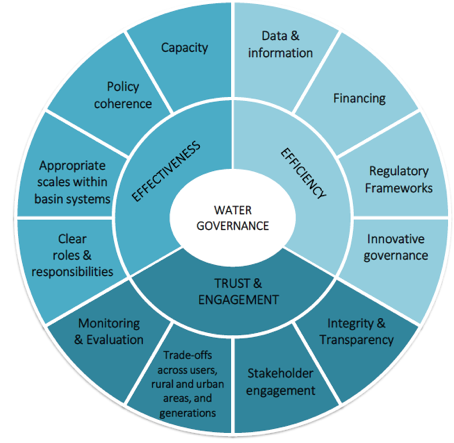India aspires to become the 2nd largest economy by 2047 which will have an enormous impact on the use of water resources and thus highlights the need for effective water governance.

At 1.4 billion, India accounts 17.5% of the world’s population but has only 4% of the fresh water resources. The per capita annual fresh water availability has gone down from 5177 cu m (1951) to 1486 cu m (2019).
|
Top performers of G20 in Water Management |
|
|
Water – 7th Schedule of Indian Constitution |
||
|
|
Union List |
State List |
|
Shipping and Navigation |
On inland, tidal and national waterways |
On inland waterways |
|
Carriage of goods & passengers |
By sea or in national waterways |
By inland waterways |
|
Fishing & fisheries |
Beyond territorial waters |
Within state boundary |
|
Regulation on |
Training and education of mercantile marines by states and other agencies and develop interstate rivers and river valleys |
Taxes on goods and passengers carried by road/ inland waterways |
References